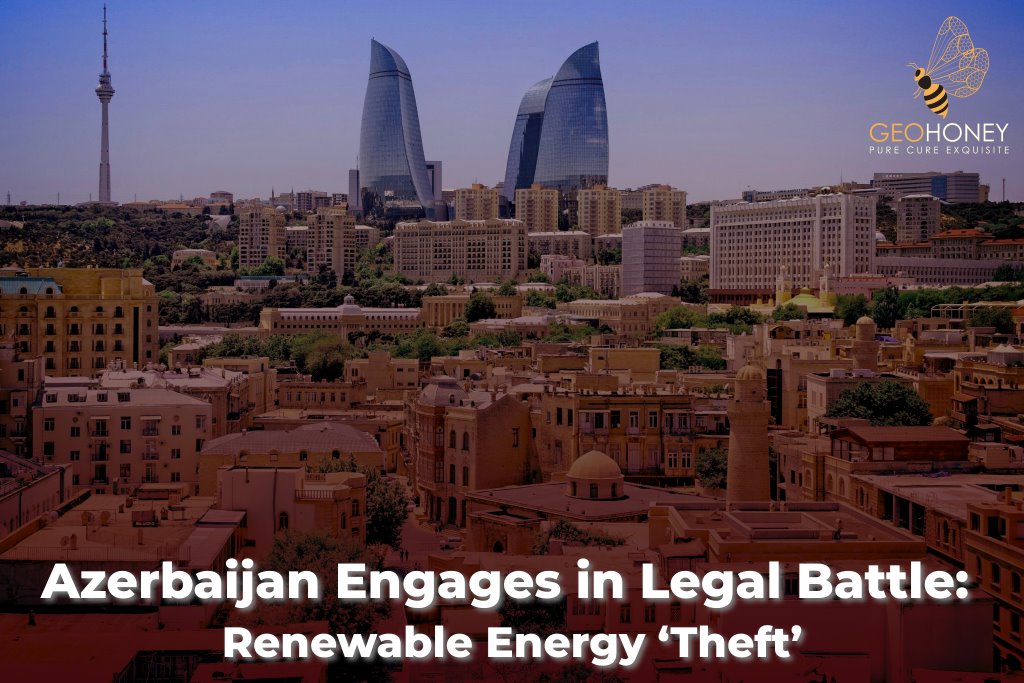- Tokyo: 19:09
- Singapore: 18:09
- Dubai: 14:09
- London: 10:09
- New York: 05:09
Renewable Energy 'Theft': Azerbaijan Engages in Legal Battle

Azerbaijan, the host of the upcoming COP29 climate summit, has initiated a groundbreaking legal claim against its neighbor, Armenia, alleging the theft of its renewable energy resources. The case, taking place in the Netherlands, began last week at the Peace Palace in The Hague, with Azerbaijan accusing Armenia of unlawfully exploiting its green energy resources. The timing of this legal action is significant as the world's attention turns towards Azerbaijan, which is set to host the COP29 climate change summit in December.
Azerbaijan has already faced controversy surrounding the summit, as its 28-member organizing committee does not include any women. Additionally, the appointment of Mukhtar Babayev, a veteran of the oil industry and now the Minister of Ecology and Natural Resources, as the president-designate of the summit has drawn criticism. Against this backdrop, Azerbaijan's legal claim seeks to address alleged violations in the use of renewable resources located in the Nagorno-Karabakh region.
The Nagorno-Karabakh region, characterized by its mountainous terrain, has been a source of conflict between Azerbaijan and Armenia, resulting in two wars. Since the fall of the Russian Empire in 1917, both countries have laid claim to the enclave. Azerbaijan controlled the territory for a significant part of the 20th century and established various energy infrastructure, including the Tartar hydro-electric plant with a capacity of 50MW in the 1970s.
Following the dissolution of the Soviet Union in 1991, Armenians gained control over most of the territory during the First Nagorno-Karabakh War. The region came under the administration of the internationally unrecognized Republic of Artsakh, predominantly populated by ethnic Armenians. After years of simmering tensions, Azerbaijan launched a lightning offensive in 2020, reclaiming the territory in a 44-day war with Armenia.
In 2020, Azerbaijan filed a claim against Armenia under the Energy Charter Treaty, marking the first inter-state case within the multilateral framework for energy cooperation. The claim sought compensation for the alleged illegal exploitation of renewable resources in the Nagorno-Karabakh region during Armenia's control. Azerbaijan contends that Armenia wrongfully excluded it from accessing the energy resources, expropriating them for its own benefit and hindering Azerbaijan's development opportunities.
Azerbaijan further argues that it was prevented from harnessing the considerable potential of hydropower, wind, and solar energy resources in the region. The claim highlights the exploitation of hydropower as a crucial aspect, with Azerbaijan asserting that Armenia illegally utilized the Tartar plant and constructed at least 37 additional unauthorized hydropower facilities during its occupation. The Nagorno-Karabakh region contains a quarter of Azerbaijan's internal water resources, making this issue of significant concern.
Notably, the legal claim also encompasses fossil fuel assets, considering Azerbaijan's substantial reserves of oil and natural gas. Allegations include the extraction of coal from the region and damage to a natural gas pipeline. Armenia has dismissed Azerbaijan's case as groundless, setting the stage for a complex legal battle between the two nations.
The Permanent Court of Arbitration is administering the proceeding, with three arbitrators appointed to hear the case at the Peace Palace. Notably, this is not the only international legal action initiated by Azerbaijan against Armenia. Last year, Azerbaijan accused Armenia of destroying the region's biodiversity in a separate legal claim.
As the legal battle unfolds, it raises important questions regarding the exploitation and ownership of renewable energy resources. The outcome of this case could have significant implications for future disputes over green energy assets, highlighting the need for international frameworks and cooperation in managing and distributing these resources equitably.
Source: rechargenews.com



